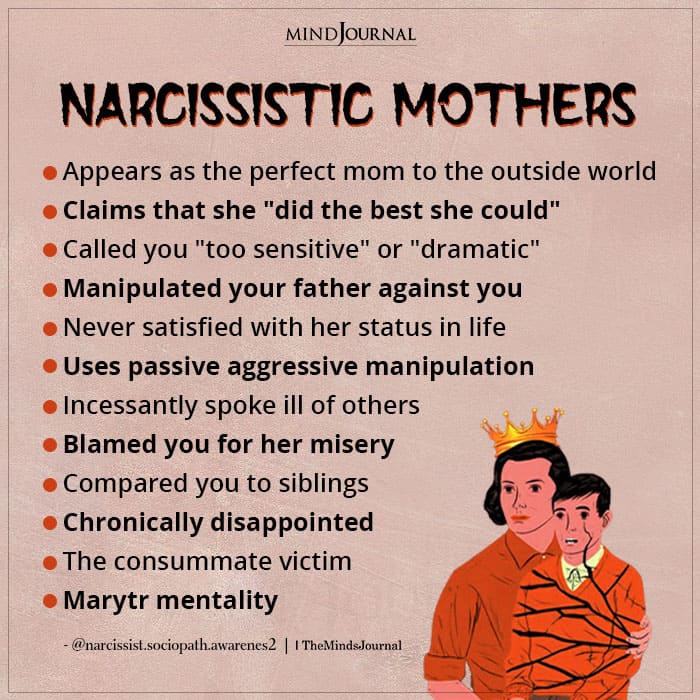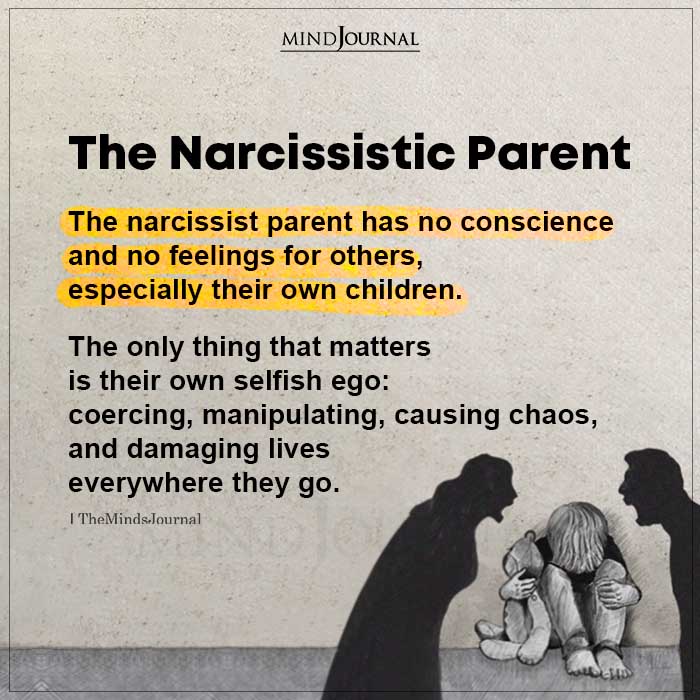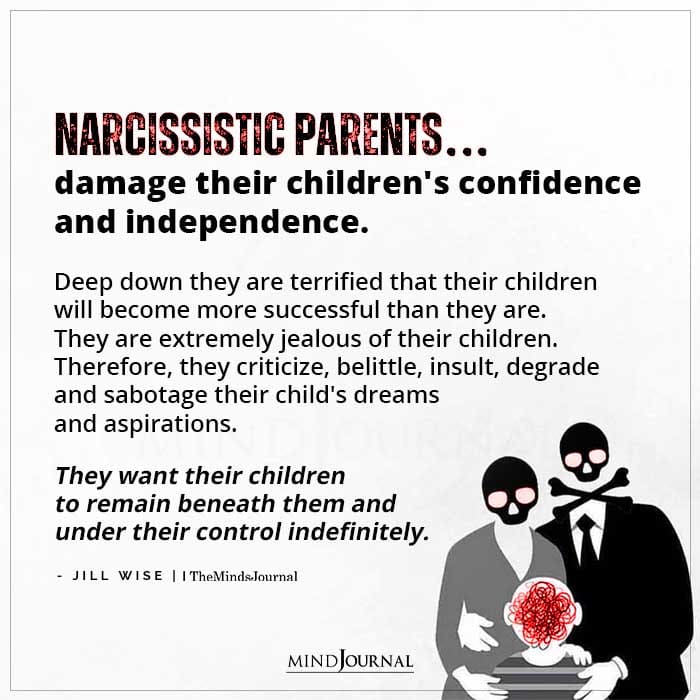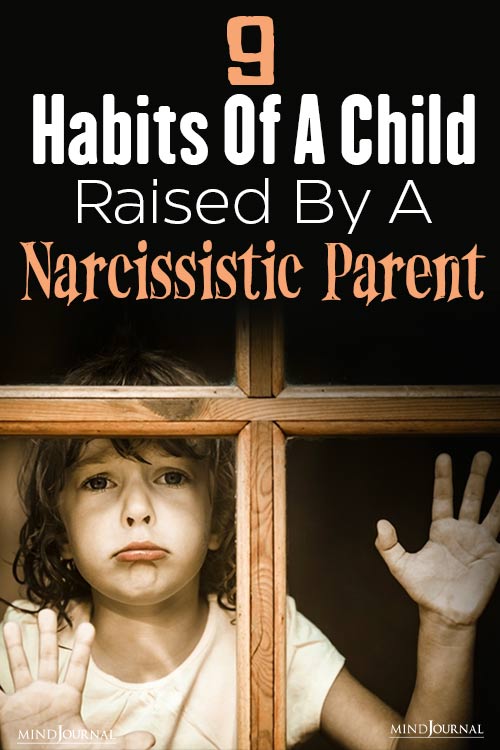If you have been raised by a narcissistic parent, you know how tumultuous and disturbing your childhood has been. As a child of a narcissistic parent, you must have been through a lot of painful and humiliating things while being forced to mirror them constantly.
Growing up with NPD parents can have far-reaching consequences that can shape your relationship with the world and the people around you.
The first step towards recovery from narcissistic parents is understanding them. Whether it’s their early developmental trauma that triggers such behaviors or their fear of watching their children become independent, being informed about NPD parents mitigates the passing on of generational trauma to a great extent.
Related: 30 Ways In Which Narcissistic Parenting Affects A Child
9 Subtle Behaviours Of A Child Of A Narcissistic Parent
As adult children of narcissistic parents, it is not always easy to recognize the lingering detrimental repercussions, but they can impact your life significantly. Let’s take a look at nine unconscious behaviors that might hit home because you are the child of a narcissistic parent.
1. You just can’t take compliments.
Do you think you don’t deserve the happiness life offers you? Are you unable to give yourself any credit for your success?
Being the child of a narcissistic parent meant there were few opportunities for praise and acknowledgment but constant comparisons and competitiveness. For this reason, adult children of narcissistic parents may find it difficult to accept compliments. They tend to concoct an unhealthy self-image.
When someone acknowledges your strengths, you tend to downplay your achievements or feel uneasy being praised. The compliments are interpreted as not being well-deserved. This comes from an underlying need for genuine validation.
With time, it becomes difficult to internalize positive feedback and fully receive the recognition you deserve.
For example, Taylor deflects compliments about her achievements, feeling unworthy due to a lack of acknowledgment from her narcissistic parent. She faces problems when it comes to accepting and internalizing positive feedback because she never got any of it as a child.
2. You use Sorry in every sentence like it’s punctuation.
When you’re the child of a narcissistic parent, you tend to apologize all the time, even for things that you are not responsible for. This is because you grew up with your parents calling you a bother, disgrace, or burden who is never enough.
Your parents have constantly made you feel like you can do nothing right, and that you are nothing more than an inconvenience to them. By repeatedly berating you and making you feel like a waste of space, they have shattered your self-confidence.
Moreover, you have learned to apologize for things that were not your fault or insignificant things, just to avoid conflicts. This coping mechanism has stuck with you, even after you became an adult.
Learning about it might help you out of it eventually because constantly saying sorry cheapens the apology.
For example, Sarah has the habit of excessively apologizing to people and this stems from her narcissistic upbringing. Sarah takes the blame on herself even when a friend cancels plans with her. This habit was developed as a coping mechanism to avoid criticism and have some semblance of peace at home.

3. Your emotional intelligence plummets as you grow older.
This is another one of the major traits of children of narcissistic parents.
You might be an empathetic person, but you have poor emotional intelligence. You might be thinking, how is that even possible?
Unfortunately, your narcissistic parent has raised you in such a way that you have been brainwashed into believing your feelings don’t matter. They taught you not to feel anything at all.
Instead, you were made to feel that everything is perfectly fine and the best thing you can do is stay positive all the time, AKA, toxic positivity.
Because you have been forced to suppress your instincts by ignoring your gut merely for survival purposes, there are times when your body screams at you to avoid other toxic people and you fail to pick up on this warning.
For example, Rachel has had problems expressing and understanding emotions since she grew up in an emotionally neglectful environment. Her parents were self-absorbed and did not provide meaningful guidance on emotional understanding, which resulted in Rachel struggling to recognize and express feelings.
4. Your Self Gaslighting isn’t extinguishable.
Internalized gaslighting is one of the major traits of children of narcissistic parents.
It is a form of emotional and psychological manipulation where an individual or group subtly creates uncertainty in a targeted person, making them doubt their own memory, perception, or judgment.
Having been raised by a narcissistic parent can leave you feeling like you don’t have much to offer, even if it’s completely untrue. Growing up, your talents and skills may be ignored, downplayed, or co-opted by the narcissistic parent who might have felt threatened by your abilities.
Even now, after being a grownup, you tend to think that you shouldn’t be successful at all since you genuinely feel like you lack the talent for anything.
For example, Alex has always been told that no matter how hard he tries, he will never amount to anything, because he doesn’t have what it takes. That’s why, despite being extremely successful, he suffers from imposter syndrome, and he feels like a fraud who doesn’t deserve the success he has earned.
5. You’ve got chronic trust issues.
When you are the child of a narcissistic parent, your trust is violated as a child repeatedly. You were emotionally or even physically abused. Many a time your vulnerability was taken advantage of.
So, it is understandable why it is difficult for you to let anyone enter into your life even when they’re harmless or really nice. Your NPD parents traumatized you well enough to build that trust issue in you.
You tend to feel over-cautious whenever you notice red flags. You have mastered the art of self-sabotage, especially when it comes to business or romantic relationships.
You might take months to disclose personal information, unless, of course, you overshare because your boundaries are not strong or strict enough.
For example, Emily has difficulty opening up to others as she grew up with a narcissistic parent who betrayed her trust. Now she fears vulnerability because she believes that anyone she shares things with will eventually betray her.
Related: The Narcissistic Parent: 5 Signs You Were Raised By One

6. You’re also a pathological people-pleaser.
You can’t say No, can you? Being the child of a narcissistic parent means you taught yourself to say yes even when you were not in agreement with your toxic parents as a child. When you didn’t meet their demands blindly, you were punished or abused.
You deleted the ‘No’ because it was important for the survival of a small helpless kid who had done everything to ensure that their parents didn’t abandon them. You said “yes” to protect your emotional and mental well-being for the time being.
For example, James cannot say no despite feeling overwhelmed due to his narcissistic upbringing. He cannot assert his needs or reject requests because James thinks it would upset others and lead to rejection, just like his parents always demanded from him as a child.
7. You are severely codependent but afraid of intimacy.
The child of a narcissistic parent is usually averse to intimacy in relationships. Our primary caregivers play a significant role in shaping our attachment styles, even though other environmental factors and genetics have effects too.
You may develop an insecure attachment style if you have NPD parents. When you are in a relationship, you might think that your partner doesn’t want to be as close as you’d like them to be and therefore get anxious over minor things that are not a big deal. You end up lashing out over small issues and then feel even worse than you did before.
On the other hand, sometimes you will try to protect your autonomy at all costs by keeping people at bay and being a closed book.
However, children of narcissists can develop co-dependent tendencies, which leads them to seek validation and approval from others. Such codependent tendencies may be the result of an underlying belief system that makes you think that your self-worth and importance depend on how others perceive and behave toward you.
For example, Chris finds it hard to develop deep relationships due to inconsistent love received from a narcissistic parent. He either avoids close relationships entirely due to fear of abandonment or rejection from childhood or relies too heavily on his partners for validation.
Related: 30 Ways In Which Narcissistic Parenting Affects A Child
8. You probably have inherited psychological issues.
Growing up with NPD parents increases the chances of you suffering from mental health issues that have harmful physical manifestations.
Whether by drowning yourself in alcohol and drugs, or depriving yourself of food, you try to establish control over little things that your narcissistic parents can’t touch.
You may find yourself perpetually worrying about your body image, thereby developing eating disorders. You could also be prone to drug addiction or obsessive perfectionist tendencies. All of this occurs because you were not given proper parental care which negatively impacted your mental, emotional, and even physical well-being.
For example, Jordan measures his self-worth through the eyes of others. His parents guilt-tripped him into submission every single time he wanted to follow his heart. As a result, he controls his food or intoxication since he can’t control his life.

9. You feel safe in blaming yourself.
One of the biggest traits of children of narcissistic parents is the lack of self-confidence and chronic self-blame. Growing up being the child of a narcissistic parent can be tough because your self-esteem is eroded by constant criticism and invalidation.
This sometimes makes you think that you are not good enough. This often leads to feelings of inadequacy and inability to acknowledge your own abilities. It feels as though there is an ongoing internal voice questioning the significance of anything you do.
Also, in most cases, the narcissistic parent will not openly abuse the child but will always be emotionally tone-deaf; they are too preoccupied with themselves and their own issues to pay any attention to your pain.
And because you want to keep the family together (even if you are now well into adulthood), blaming your parent is out of the question, so you take all the blame on yourself – “If I had been better at…,” “If I hadn’t been such a difficult child…” etc.
This may continue into adulthood where as an adult you still blame yourself for situations that are not always within your control. You become the scapegoat sometimes solely to keep the peace, even at the cost of yours.
For example, Cameron always blames herself for every negative outcome, even when it is beyond her control. Because she grew up with a narcissistic father who constantly shifted blame, she has internalized self-blame and now perpetually suffers from low self-esteem.
Related: How Children Of Narcissistic Parents Grow Up Forgotten
So, these are all the subtle traits of children of narcissistic parents! Could you relate to any of these signs that you might be the child of a narcissistic parent? What is your advice when it comes to recovery from narcissistic parents? Let us know in the comments down below!










Leave a Reply